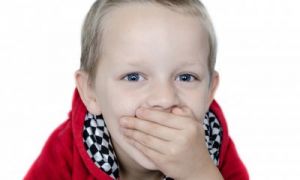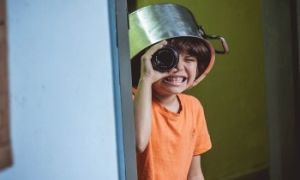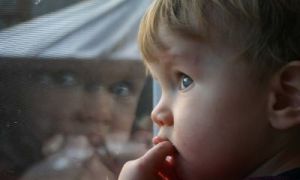At this point preschoolers begin to interact effectively with others. Play becomes more innovative and organized and “boyfriend” or “girlfriend” begins to emerge. Preschoolers have developed an understanding for other’s feelings and become more sensitive. They will also want to be given more responsibility and enjoys helping out with chores... basically at this stage a preschooler is a mini adult.
Social and Emotional Development Milestones
- compares their physical selves as well as their abilities with others
- show understanding of what is accepted as good behaviour or what behaviour is bad
- starts developing friendships
- becomes more aware of other people's feelings
- enjoys imaginative play with other children
- starts showing an interest in gender differences
- begins to tell on each other
- enjoys playing with other children
- may have a particular friend
- shares, smiles and cooperates with peers
- jointly manipulates objects with others
- starts having best friends
- able to understand and follow rules
- likes to dance and sing
- shows increasing independence
- comprehends fantasy from reality
- can be very demanding / bossy
- co-operates easily with others
- understands when someone is hurt and comforts them
- shows stronger preference for same-sex playmate
- enforces gender-role norms with peers
- may show aggression with peers
- likes to give and receive affection from parents
- begins praise themselves and be boastful
- wants to please friends
- likely to agree to rules
- shows independence
Preschoolers model the behaviour they observe and need to be encouraged to say please and thank you or even lend a helping hand. Opportunities will often arise where a preschooler may offer their help to do certain tasks or chores. This is a positive step in their behaviour. A preschooler needs to be told that what they are doing is right for re-assurance. For those around a preschooler it’s important to show socially acceptable interactions.


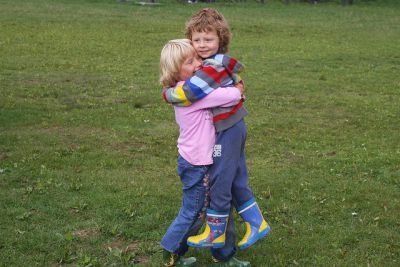


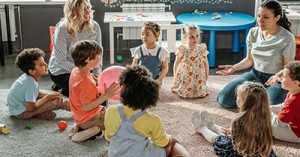
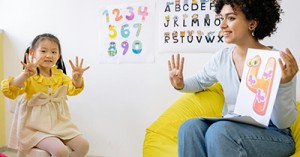
 Toddlers have a greater understanding of the world around them by this stage. Their cognitive development (also known as intellectual development and thinking skills) continues
Toddlers have a greater understanding of the world around them by this stage. Their cognitive development (also known as intellectual development and thinking skills) continues Infants begin to develop trust when parents begin to fulfil their needs. Such as changing an infant's nappy when needed, feeding on request and holding
Infants begin to develop trust when parents begin to fulfil their needs. Such as changing an infant's nappy when needed, feeding on request and holding Beginning at birth the construction of thought processes, such as memory, problem solving, exploration of objects etc, is an important part of an infant’s cognitive
Beginning at birth the construction of thought processes, such as memory, problem solving, exploration of objects etc, is an important part of an infant’s cognitive Toddlers want to do more on their own and do not like it when you begin to establish limits on their behaviour. Tantrums can become
Toddlers want to do more on their own and do not like it when you begin to establish limits on their behaviour. Tantrums can become Your preschooler is now able to focus their attention more accurately and is less influenced by distractions. The intensity of questions increase as your child
Your preschooler is now able to focus their attention more accurately and is less influenced by distractions. The intensity of questions increase as your child John Dewey is often seen as the proponent of learning by doing – rather than learning by passively receiving. He believed that each child was active,
John Dewey is often seen as the proponent of learning by doing – rather than learning by passively receiving. He believed that each child was active, Toddler advance and gains new skills in Gross Motor Development milestones achieved throughout earlier years. Co-ordination and challenges that could not be performed before such
Toddler advance and gains new skills in Gross Motor Development milestones achieved throughout earlier years. Co-ordination and challenges that could not be performed before such Erik Erikson developed a psychosocial theory to understand how we each develop our identities through eight stages of psychosocial development from infancy to adulthood. The
Erik Erikson developed a psychosocial theory to understand how we each develop our identities through eight stages of psychosocial development from infancy to adulthood. The At this point preschoolers begin to interact effectively with others. Play becomes more innovative and organized and “boyfriend” or “girlfriend” begins to emerge. Preschoolers have
At this point preschoolers begin to interact effectively with others. Play becomes more innovative and organized and “boyfriend” or “girlfriend” begins to emerge. Preschoolers have From now, babies begin to identify and respond to their own feelings, understanding other's feelings & needs and interact positively with others. A baby's social and
From now, babies begin to identify and respond to their own feelings, understanding other's feelings & needs and interact positively with others. A baby's social and